What will happen to pro cycling? Exploring the economic landscape after coronavirus
From the fate of various WorldTour teams to whether a behind-closed-doors Tour de France actually solves anything
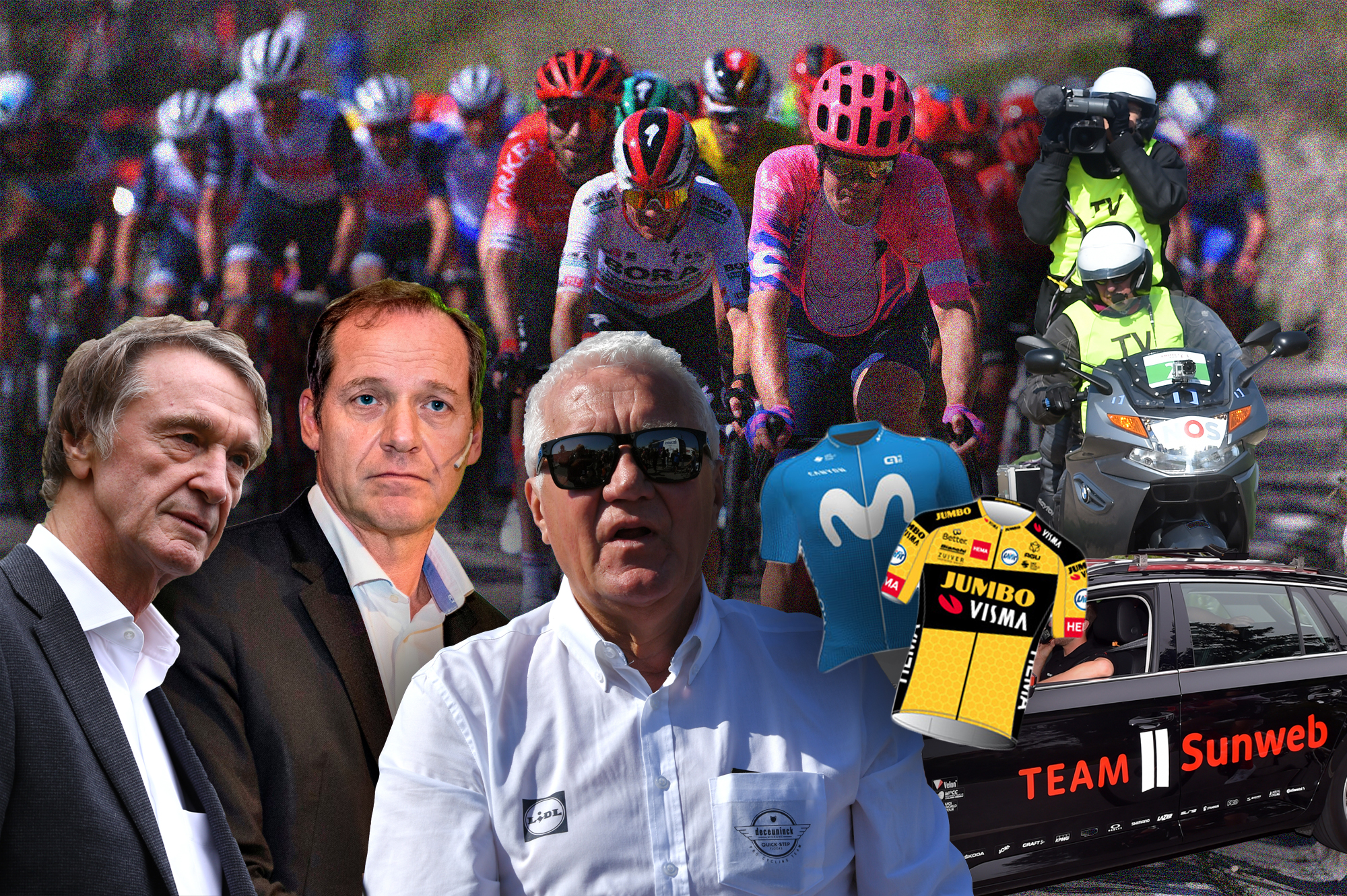
Images from Getty
On January 21 2020 Sam Bennett outsprinted the rest of the peloton to claim the first WorldTour stage victory of the season at the Tour Down Under.
Bennett would have no doubt been delighted to pick up a win at the first attempt for his new Deceuninck - Quick-Step team, and won't have been the only rider resplendent in new kit below the Australian sun, glad to have escaped the depths of European winter. Three months on, the season lies in tatters.
Races, which are basically convoluted mass gatherings, have been necessarily cancelled as the world battles to reduce the spread of the virus and save as many lives as possible. Once the virus is hopefully contained and a treatment is found life can return to some sense of normality. What that normality will look like is impossible to know, but with economic activity severely reduced around the world it certainly won't be business as usual.
Livelihoods will be lost across various industries and cycling is no different. In terms of cycling as leisure, bike shops in the UK remain open as they are deemed essential businesses, with many flocking to get their bikes fixed up as going out and exercising is one of the few freedoms allowed by the lockdown. Turbo trainers have also been flying off the shelves, with Brompton's Will Butler-Adams estimating sales across the industry are up 15%.
As for the professional side of the sport, times are looking increasingly tough. Lotto-Soudal were one of the first, at least at WorldTour level, to temporarily lay off support staff, with riders also voluntarily taking pay cuts. Then it was announced Bahrain-McLaren's riders would be losing 70 per cent of their paychecks for the next few months. CCC were next, the Polish shoe company saying their outlook was looking bleak, announcing worrying financial numbers before Jim Ochowicz's cycling outfit had to temporarily suspend the contracts of support staff and cut the salaries of riders that will last the reason of the season.
We should expect further stories of this nature for the next few months. But which teams are most likely to be affected? Will the WorldTour be able to return to normal service once this is all over? And is the 2020 Tour de France as make-or-break as some people are making it out to be?
Get The Leadout Newsletter
The latest race content, interviews, features, reviews and expert buying guides, direct to your inbox!
We sat down with Steve Fry, the Boss of M2 Sports marketing agency, to hypothesise what could happen. While Steve was keen to stress these are all his own, personal best guesses, it's become clearer than ever that a best guess is all we can ever really have.
"Cycling is pretty exposed when it comes to a crisis like this because as we all know it's a sport that is driven primarily by sponsorship at a team level," Fry begins. "When you get to race organiser level it's generally a combination of income streams: you've got sponsorship, venues, and in a very small number of cases there's TV revenue as well, which obviously the Tour de France takes the absolute lion's share."
Much of the discussion surrounding races not being held, from an economic point of view at least, has been on team sponsors not getting their air time and therefore not receiving the value of their marketing spend. This is a problem that pales in comparison, Fry argues, to the economic survival of the businesses in question during and after the pandemic.
"When you start to look across those different income streams you can see why those that are relying on sponsorship are really significantly affected and that's not because those brands aren't now getting the exposure that they've paid for. It's because those brands are now under an unbelievable amount of pressure, in some cases they are basically going into survival mode for their businesses to be able to continue to operate. It's not just [team] sponsorship either, it's actually TV advertising, radio advertising and all that sort of stuff."
Fry thinks some sponsors may have clauses in their contracts that allow them to exit if there is no racing but even for the majority sponsorship deals will soon be up for renewal and as companies consider their 2021 budgets, costs are likely to be cut.
"I see an impact in terms of the general economic environment and how it's going to affect cycling and where or who it affects most is going to be interesting to observe," Fry says.
Which WorldTour teams could really struggle and which might be ok?
Based on the sponsor's type of business and structure, Fry sees clear differences between which headline names could disappear from the WorldTour next year or may turn out to quite unaffected by the crisis. Fry breaks down a few different cases.
Ineos
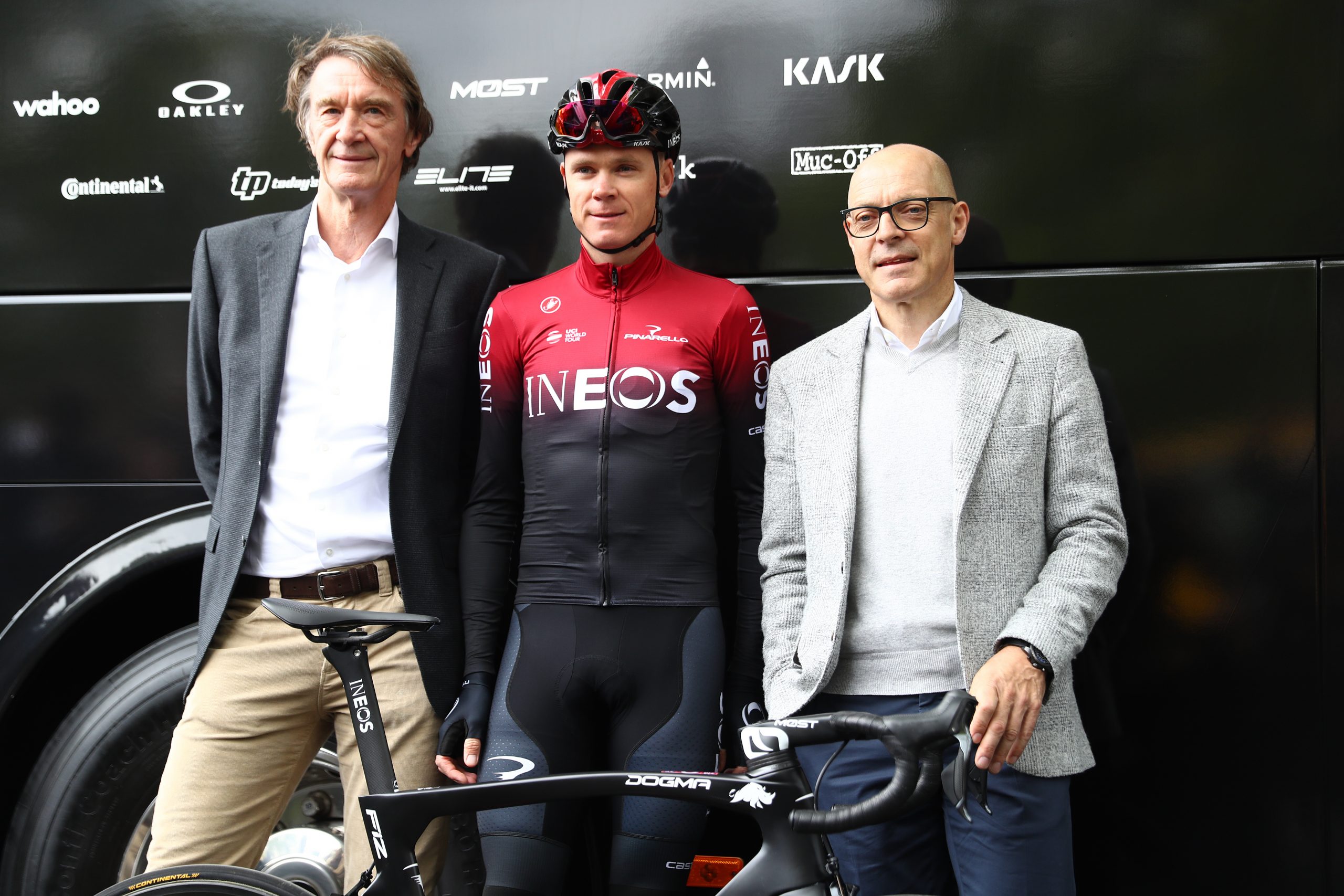
"Ineos are a privately owned business where the majority shareholder is Britain's wealthiest man in Sir Jim Ratcliffe. We know that Sir Jim is passionate about sport so I would therefore hypothesise Team Ineos are pretty well protected.
"Even though they've got the biggest budget in the sport I think they're probably going to be well protected because Sir Jim could, in effect, even with the massive impact his business an personal wealth will be taking, can still probably afford to do if that is something that he still remains passionate about and wants to do. Obviously, the caveat all the way through this analysis is this is just my point of view."
Sunweb
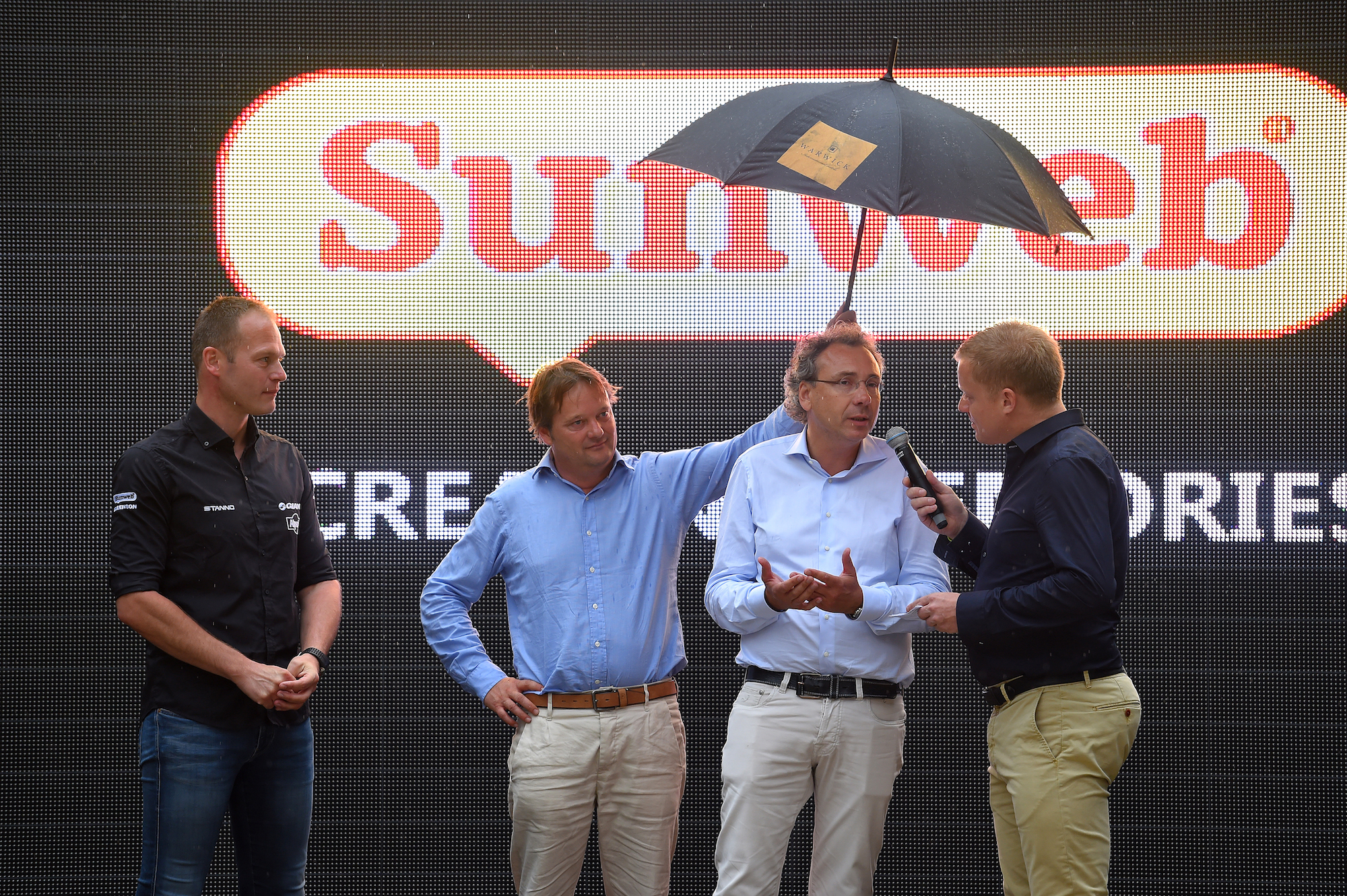
"Sunweb are in the business of selling holidays all across Europe. It's probably one of the most impacted sectors, if not the most impacted sector within business.
"Sunweb are also private equity-owned. Again this is my personal opinion, but I think that creates a very challenging situation for Sunweb because private equity-owned businesses or private equity exist to generate a return on investment.
"It's all about the profit that the business generates. If you're run by a private equity company like Sunweb are, private equity owners are going to be putting huge pressure on Sunweb to reduce their costs. One of the first place business will always go to reduce cost is marketing spend. Marketing spend and staff costs.
"The caveat to that with Sunweb is maybe they're on a long term contract with Sunweb and there may not be a clause that allows them to get out but you can see how there could be scenarios where that could happen."
Team NTT
"If you look at Team NTT, what was team Dimension Data, that's a public company. You would assume that being a public company on the stock market their share price would have taken a massive hit but it actually hasn't because NTT are in the digital space.
"Their share price has actually grown, believe it or not, it's gone up 10 per cent in value. They've absolutely bucked the market trend because they are right at the center of something that people are desperate for now in terms of digital connectivity. So they're actually in a very
positive position knowing that their primary sponsor is actually doing very, very well throughout the crisis. But they're a real exception."
Jumbo-Visma
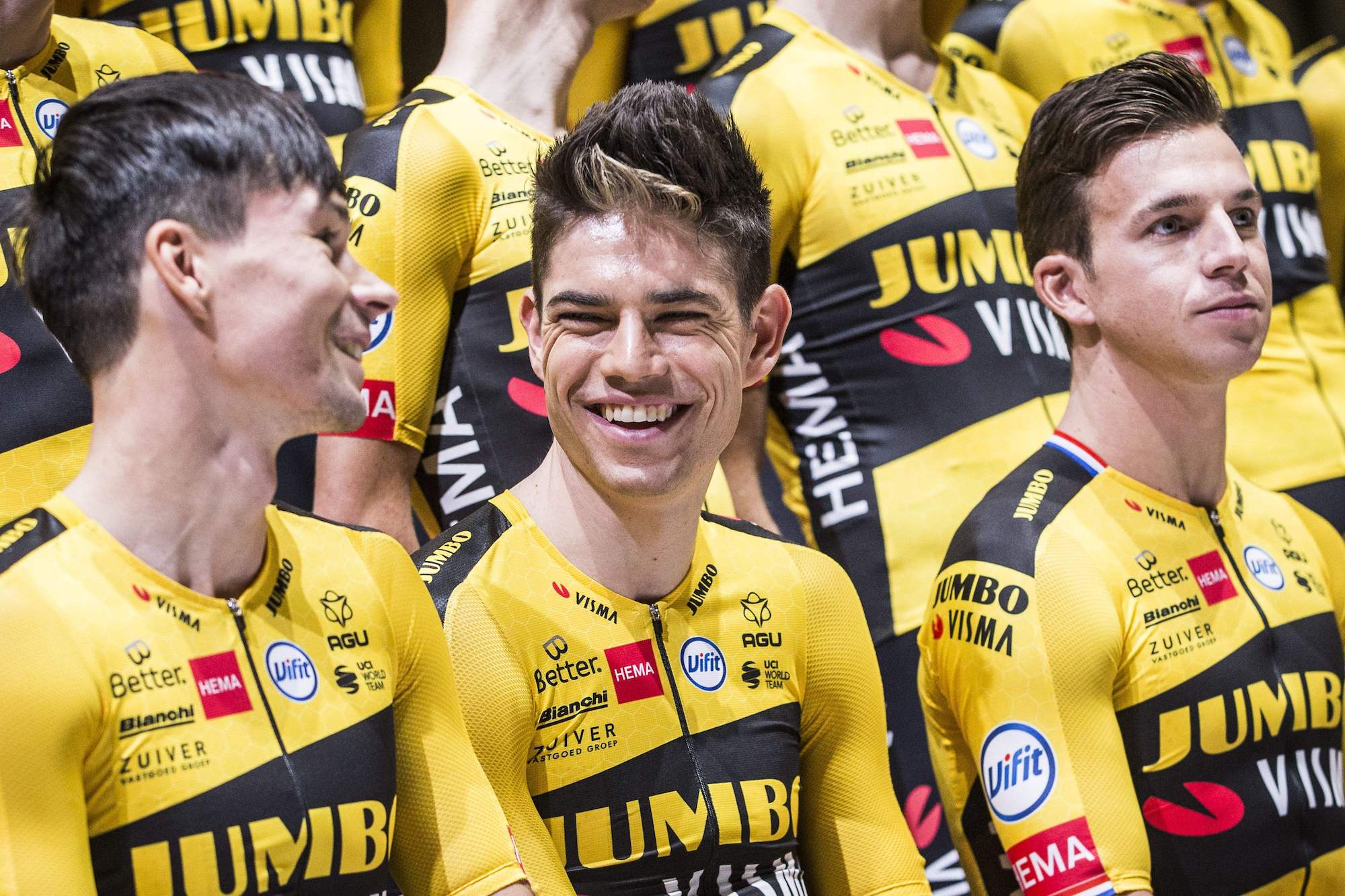
"The only other sponsors that I can think of that are probably doing well out of the crisis would maybe be Jumbo. Jumbo is a supermarket in the Netherlands and it's a family-owned supermarket chain."
Deceuninck - Quick-Step, Movistar and Trek-Segafredo
"But if you look at other public companies, take Deceuninck, they're a public company. Their share price has dropped 24 in the last month so again, that may cause huge pressure.
"The parent company of Movistar is Telefónica, who also own o2. Their share price has dropped 22% in the last month, Segafredo are another public company whose share price has dropped 29%.
"When you've got businesses that are losing a quarter of their value, shareholders still want their dividends, they want returns. Consequently, shareholders will put pressure on businesses to make sure that their costs are as low as they can possibly be.
"There's this sort of macro situation around sports sponsorship, and especially cycling sponsorship, being driven by the macroeconomic environment that's going to exist now for the next however many months.
"This isn't just, and I don't want to sound overly pessimistic, about the next six months. This will have knock-on effects for a number of years after this because businesses are just totally having to re-base themselves and start from a new, significantly lower base in terms of sales and costs."
A re-thinking of cycling's economic model?
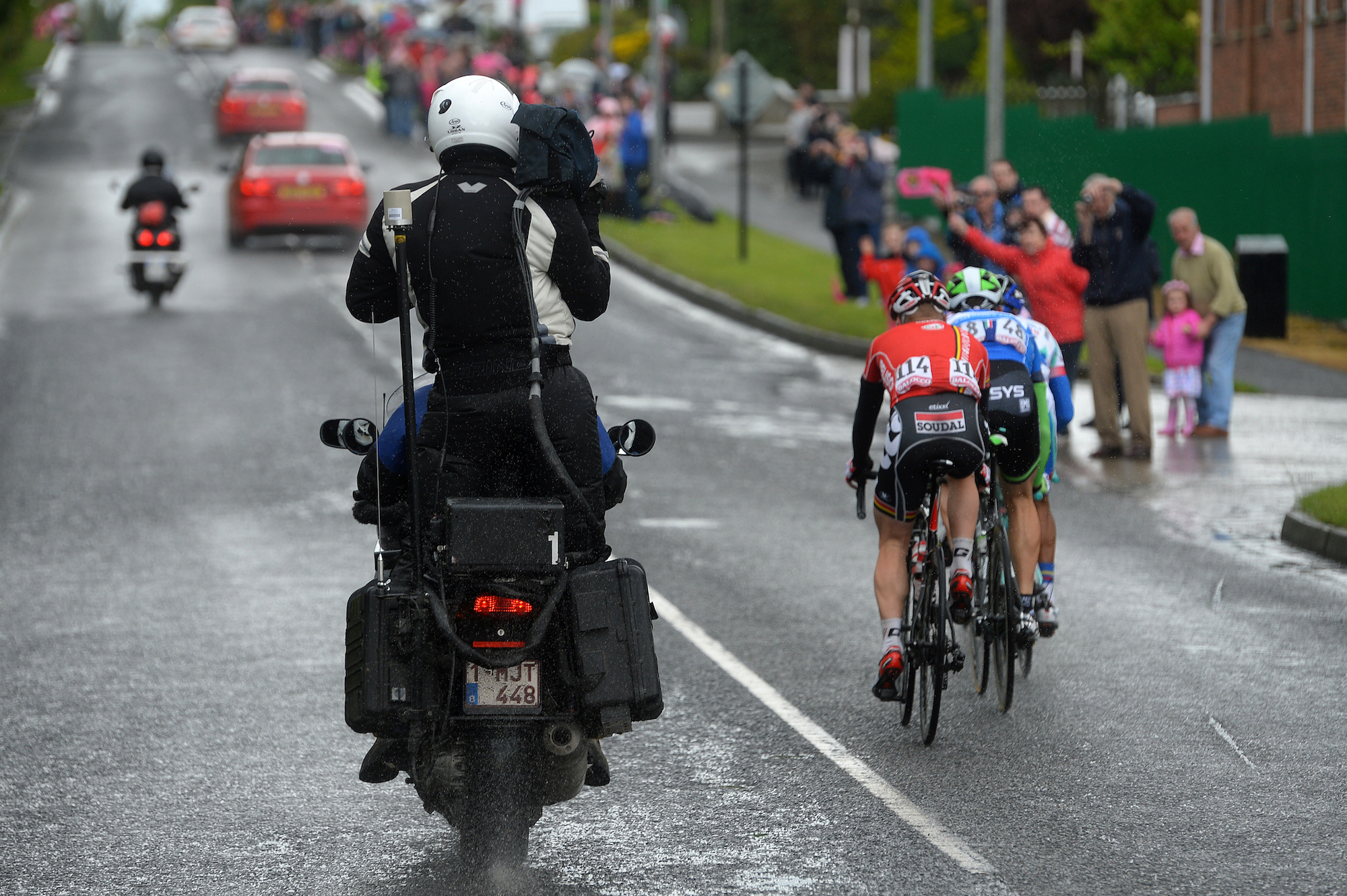
Cycling's 'broken economic model' is often discussed and times of great upheaval can bring forward times of great change.
One point that is often made is how as a sport cycling doesn't tend to share broadcasting rights between teams and organisers - ultimately the two integral parts of any bike race. With forecasted gaps in funding needing to be plugged - could this be the time for cycling to begin to share broadcasting money?
"I don't think so," says Fry, "and the reason I'm saying that is because I always think that when we talk about the economic model within cycling, the go-to sort of solution there always seems to be 'ah we need to share the TV revenue'. When you actually look at TV revenue within cycling there isn't actually that much to share.
"When you put it in comparison with how much sponsorship revenue comes in, it pretty much pales into insignificance and virtually all of it is soaked up by one race. There's only one race really that generates significant TV revenue and that's the Tour de France."
Fry doesn't envisage an outcome where ASO agree to divvy up the money between teams, but also if they did it would be a drop in the ocean.
"I'm plucking numbers out of the air here because ASO don't have public accounts," says Fry, "but I suspect each team, if it was distributed equally, would receive about €1 million. What's €1 million? It doesn't even buy you a decent rider these days.
"Whenever we talk about different economic models within cycling we've always got to be careful. The TV revenue isn't the panacea to solve the problem because there isn't actually that much TV revenue around."
What impact would less teams in the WorldTour have on the transfer market for riders?
If a number of WorldTour teams disappear from the peloton, a knock-on effect is not as many riders will be needed. Interestingly, however, Fry argues the big stars within the sport would actually become more in demand.
"Obviously, if there are less teams then it's always going to be the case where the team leaders and race winners are going to benefit the most because they'll become more in demand. There will still be the same number of riders around that could go and win you races," Fry says.
"Consequently, with less teams that means they become more in demand so they might be able to command bigger salaries or at least a bigger share of the budget the team has."
But for the rest of the peloton the situation could be pretty bleak.
"As is always the case, the place where it hits the hardest is further down the chain. So for those domestiques and younger riders that have maybe only have a couple of year's experience in the WorldTour and haven't maybe fully established themselves in terms of either being a race winner or a valued domestique, they become surplus to requirement very, very quickly, unfortunately," Fry says. "That's just the way it goes. If teams go by the wayside it will be those guys who suffer."
While we've focused mostly on the WorldTour, Fry pointed out earlier that economic impact ricochets down the 'food chains' and if a filtering down process of riders occurs, it will be towards the lower echelons where more and more riders may be squeezed out of their profession.
What benefit would a behind-closed-doors Tour de France actually bring?
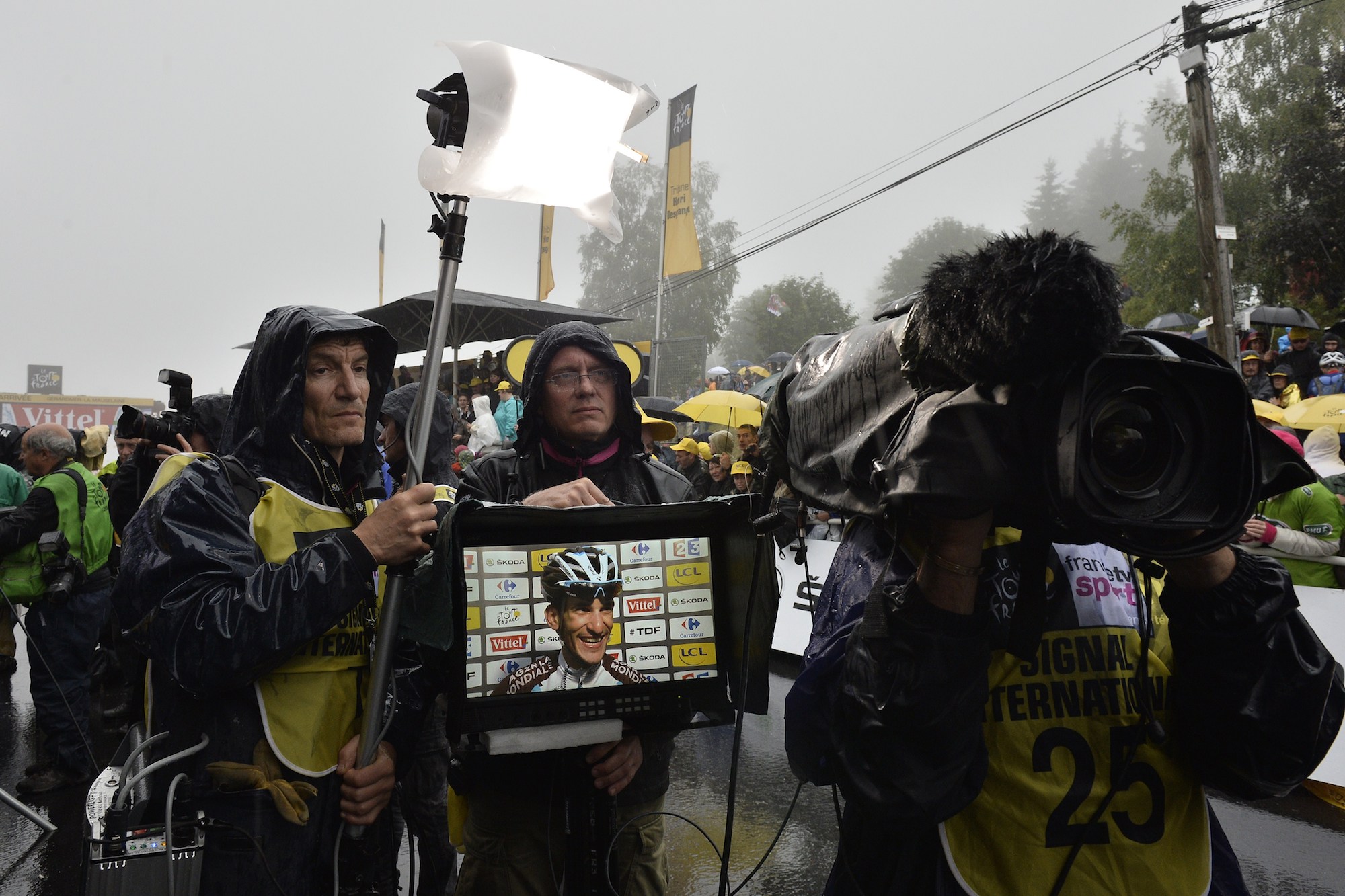
At the time of writing we've only gone two weeks without racing. Imagine what it's going to feel like when a kilometre hasn't been raced for two months.
Therefore, chatter surrounding how to avoid having races called off is the talk of the sport. Obviously, the world's biggest bike race, the Tour de France, is of most interest and the fact it's slated for three month's time gives it a better shot than the spring Classics, or even the Giro d'Italia, had of still going ahead.
A behind-closed-doors Tour de France has been one option muted, and Fry understands why ASO may be prepared to make sure their race goes ahead by any means necessary.
"I totally understand why ASO want and need it to happen," he says. "And that comes back to what we were just talking about. There isn't a revenue stream that comes from the fans by the roadside but there is a significant revenue stream for ASO that comes through being on television."
More pertinently, with people around the world currently starved of any sporting action, any event that can go ahead will probably have more eyeballs on it than ever before.
"If you are able to put a global sporting event on in a safe way right now your viewing figures are going to be extraordinary," Fry says.
"They'll be the best figures around, which is why there are lots of rights holders out there at the moment desperately trying to find a way in which they can put live sport on because they just know that the audience is absolutely desperate for it.
"You can't blame ASO in terms of wanting to find a solution to logistically make it happen and I'm not talking just about stopping fans coming to the roadside. That's probably actually the easiest bit."
The difficult bit, Fry says, is the hundreds of staff, from riders and team support to media and event personnel who travel around France for three weeks.
"The more difficult aspect is the Tour de France is an absolute mobile circus so even if they put significant limits in terms of the number of journalists, the number of organisation staff around it, we're still talking about hundreds of people moving around the country in close proximity of each other. But what a brilliant way it would be to see the sport back on our TV screens with the biggest bike race in the world."
Absence makes the heart grow fonder and this extends to cycling fans' current situation. All anyone can do at this moment in time is stay inside, watch re-runs on YouTube of old races, tune in to whatever virtual races organisers put on to try and paper over the cracks, and ultimately hope for the best for our sport when we're eventually allowed to venture outside again.

Thank you for reading 20 articles this month* Join now for unlimited access
Enjoy your first month for just £1 / $1 / €1
*Read 5 free articles per month without a subscription

Join now for unlimited access
Try first month for just £1 / $1 / €1
Jonny was Cycling Weekly's Weekend Editor until 2022.
I like writing offbeat features and eating too much bread when working out on the road at bike races.
Before joining Cycling Weekly I worked at The Tab and I've also written for Vice, Time Out, and worked freelance for The Telegraph (I know, but I needed the money at the time so let me live).
I also worked for ITV Cycling between 2011-2018 on their Tour de France and Vuelta a España coverage. Sometimes I'd be helping the producers make the programme and other times I'd be getting the lunches. Just in case you were wondering - Phil Liggett and Paul Sherwen had the same ham sandwich every day, it was great.
-
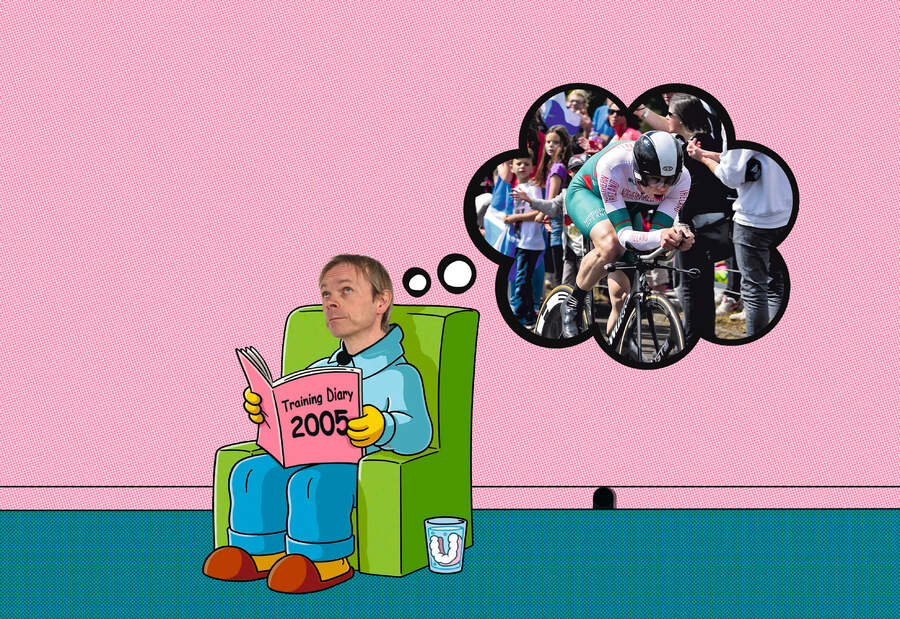 The thing that bothers me most when I look back at old school training is that right now we’re doing something equivalently misguided
The thing that bothers me most when I look back at old school training is that right now we’re doing something equivalently misguidedOur columnist's old training diaries reveal old-school levels of lunacy
By Michael Hutchinson Published
-
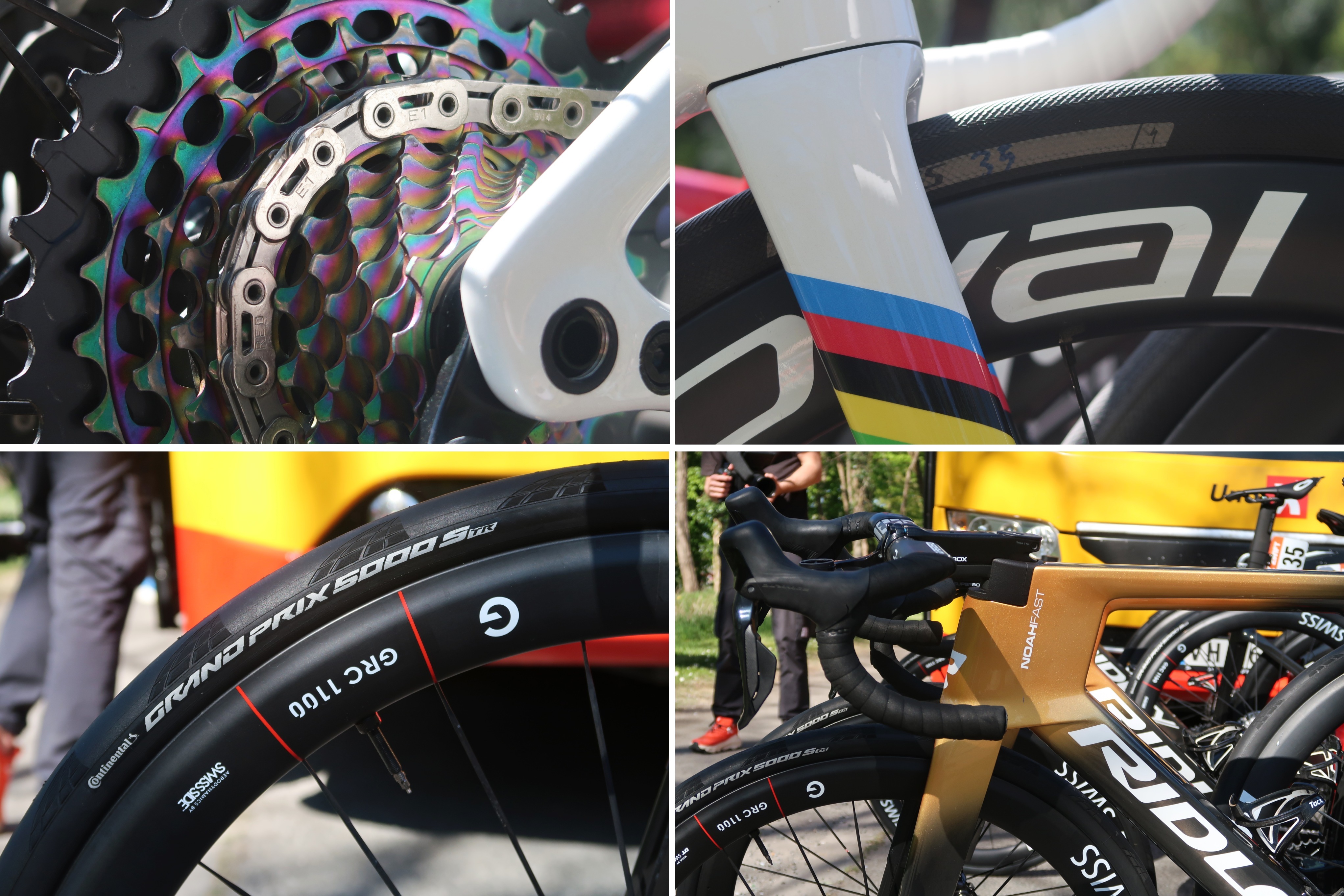 Aero bikes with gravel wheels?: Six tech insights from Paris-Roubaix Femmes
Aero bikes with gravel wheels?: Six tech insights from Paris-Roubaix FemmesEverything we found out about tyre widths, self-inflating systems, and wheel choices from the cobbled Monument
By Tom Davidson Published
-
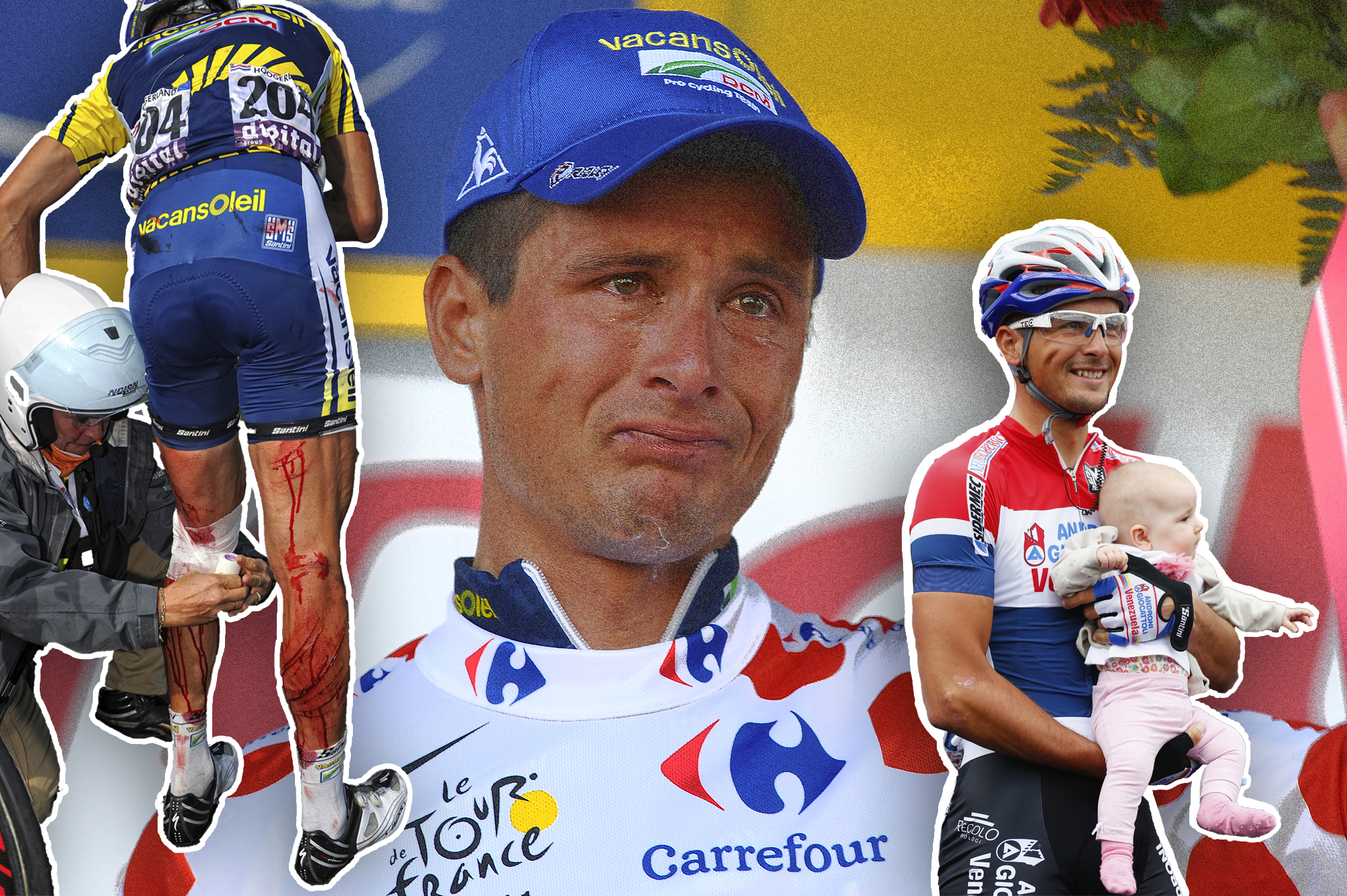 What happened to Johnny Hoogerland?
What happened to Johnny Hoogerland?A career defined by a collision with a TV car at the 2011 Tour de France, we tracked down the Dutch rider to find out how the next 10 years unfolded
By Jonny Long Published
-
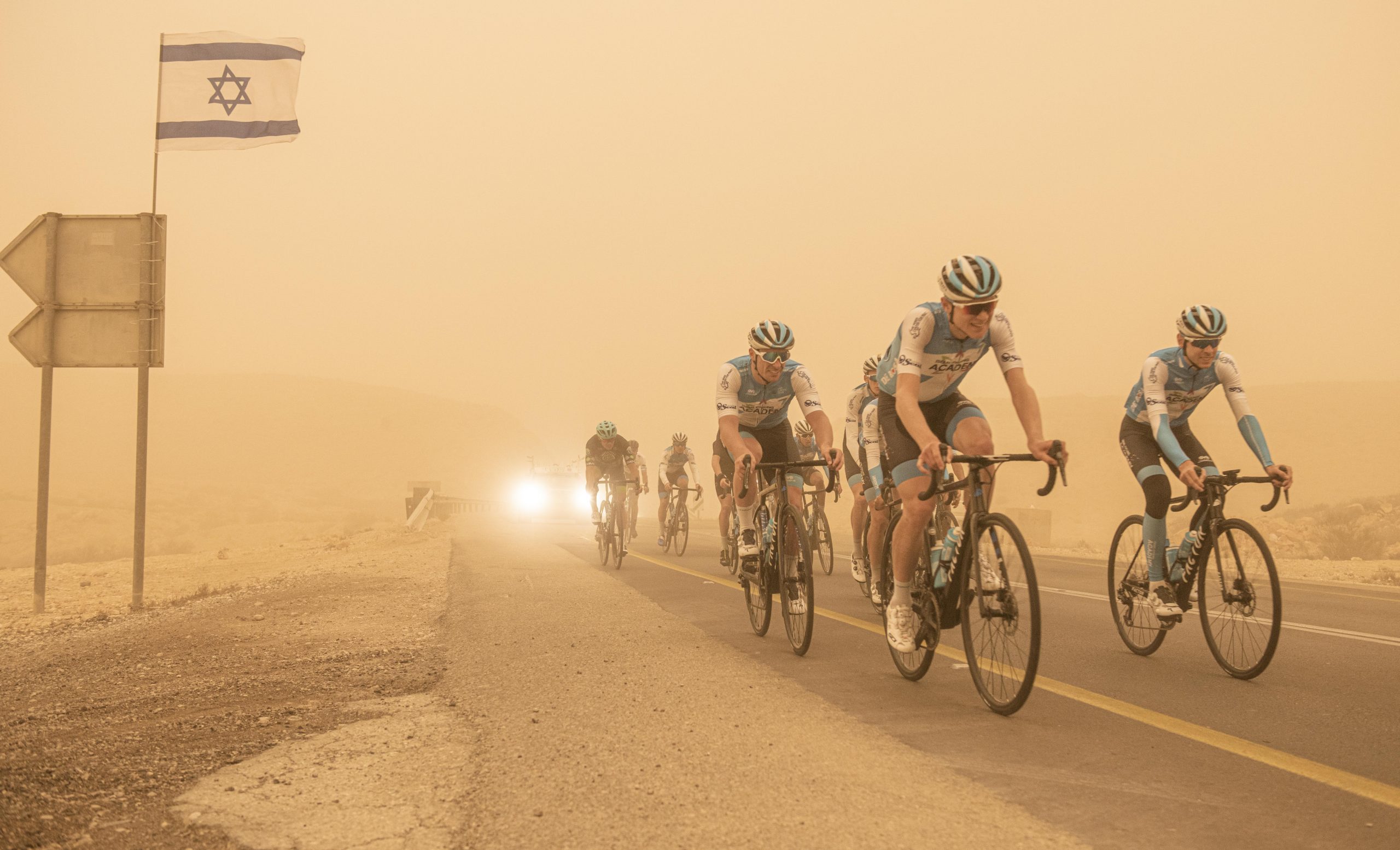 From Gaza to the Giro d’Italia – the many faces of Israel Start-Up Nation
From Gaza to the Giro d’Italia – the many faces of Israel Start-Up Nation“Thank you for the question, because this is so dumb,” says Canadian billionaire Sylvan Adams, who has just touched down from Miami and is sat in the lobby of a beachfront hotel in Tel Aviv.
By Alex Ballinger Published
-
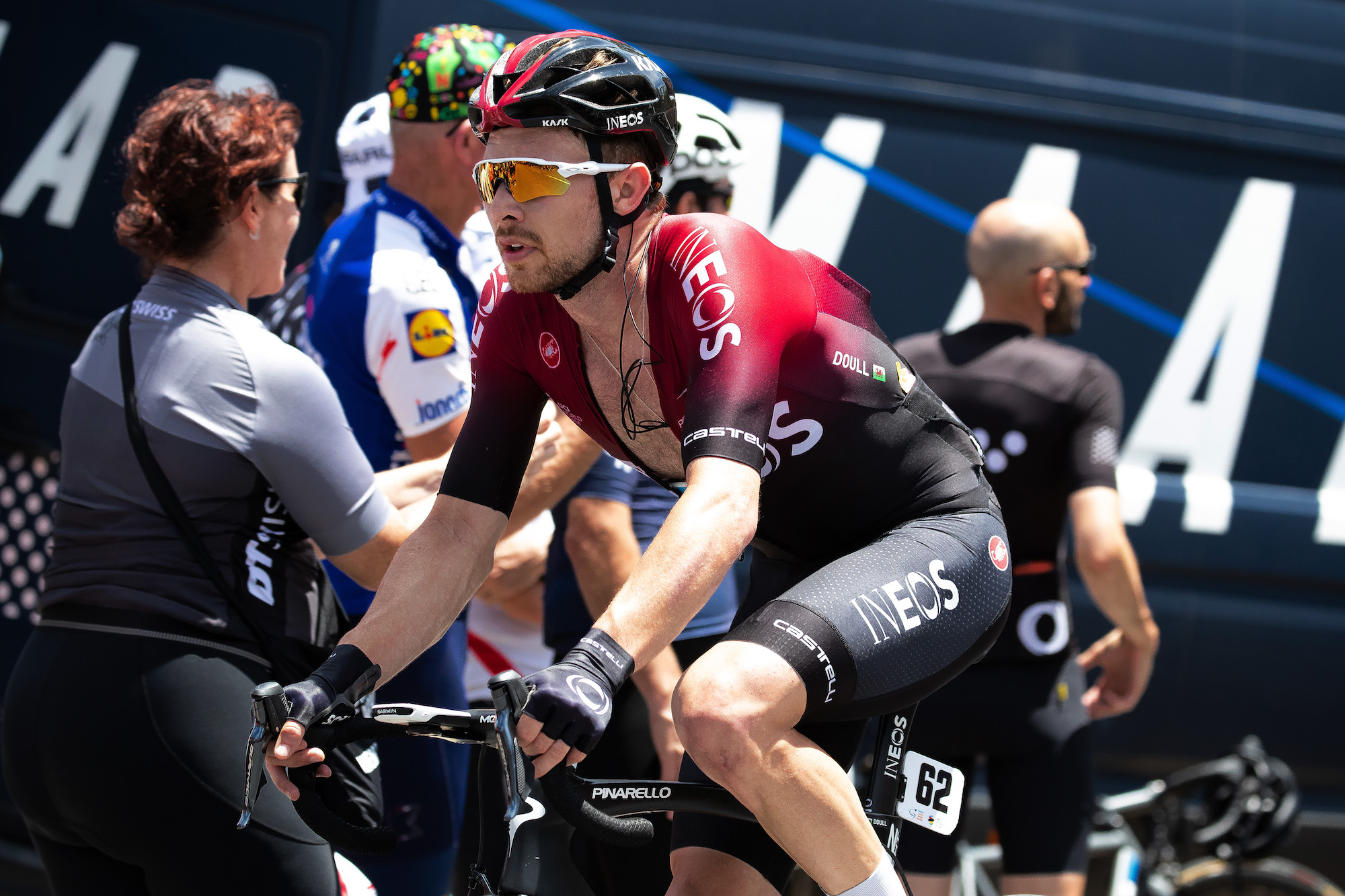 'The domestiques on our team are unsung heroes': Owain Doull Q&A
'The domestiques on our team are unsung heroes': Owain Doull Q&AThe Olympian and Team Ineos man on his Maindy roots, staying motivated and passion for coffee
By David Bradford Published
-
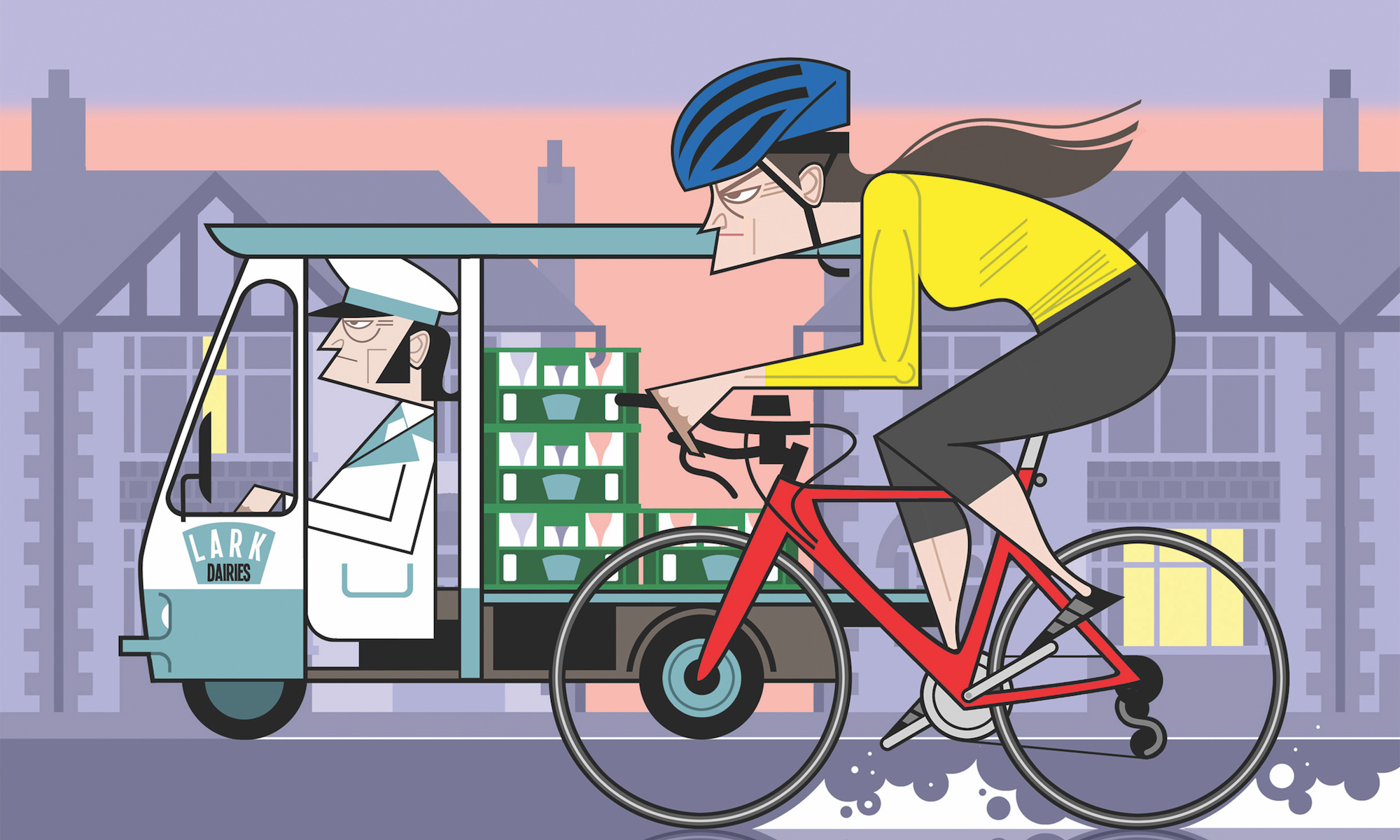 Is there a best time to train? A sports scientist investigates
Is there a best time to train? A sports scientist investigatesMost of us ride our bikes whenever we get chance, but is there a best time of day when you’ll unlock the most potential and make maximum gains? Sports scientist Dr Mark Homer investigates
By Cycling Weekly Published
-
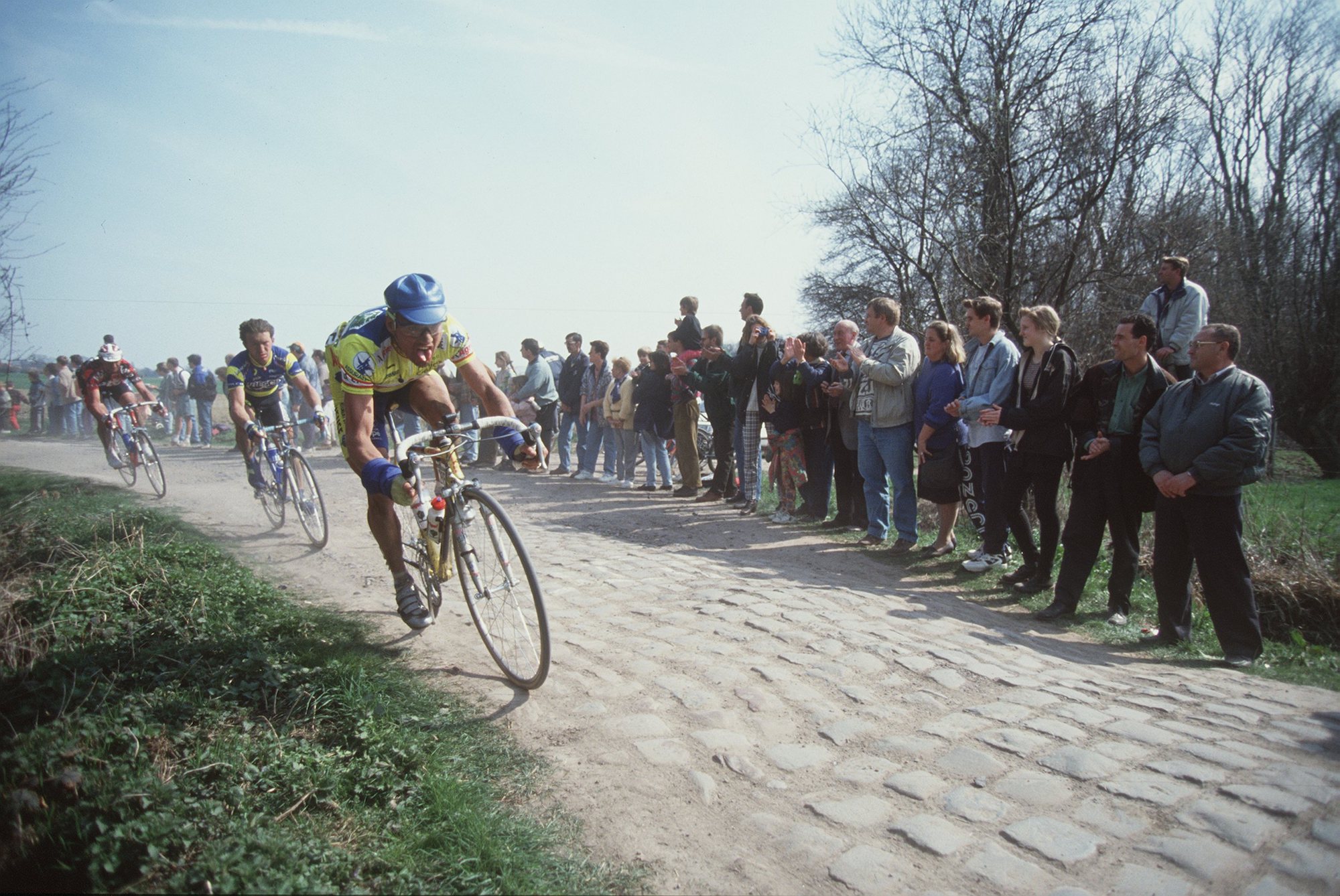 Forging legends: Here are the 10 best Classics of all-time
Forging legends: Here are the 10 best Classics of all-timeDo you agree?
By Cycling Weekly Published
-
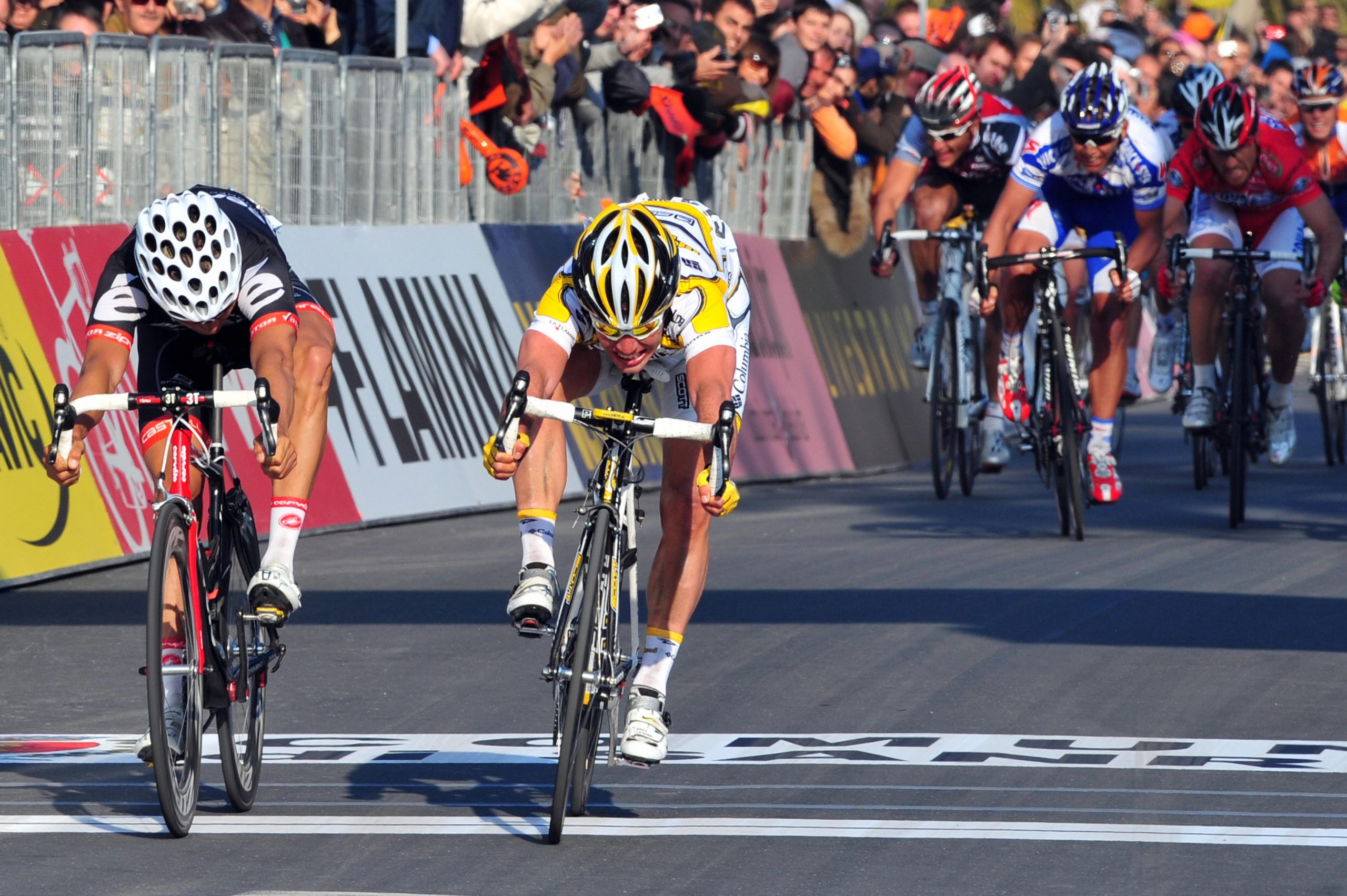 Five of the all-time best Classics rides by Brits
Five of the all-time best Classics rides by BritsFrom Tom Simpson to Lizzie Deignan
By Cycling Weekly Published
-
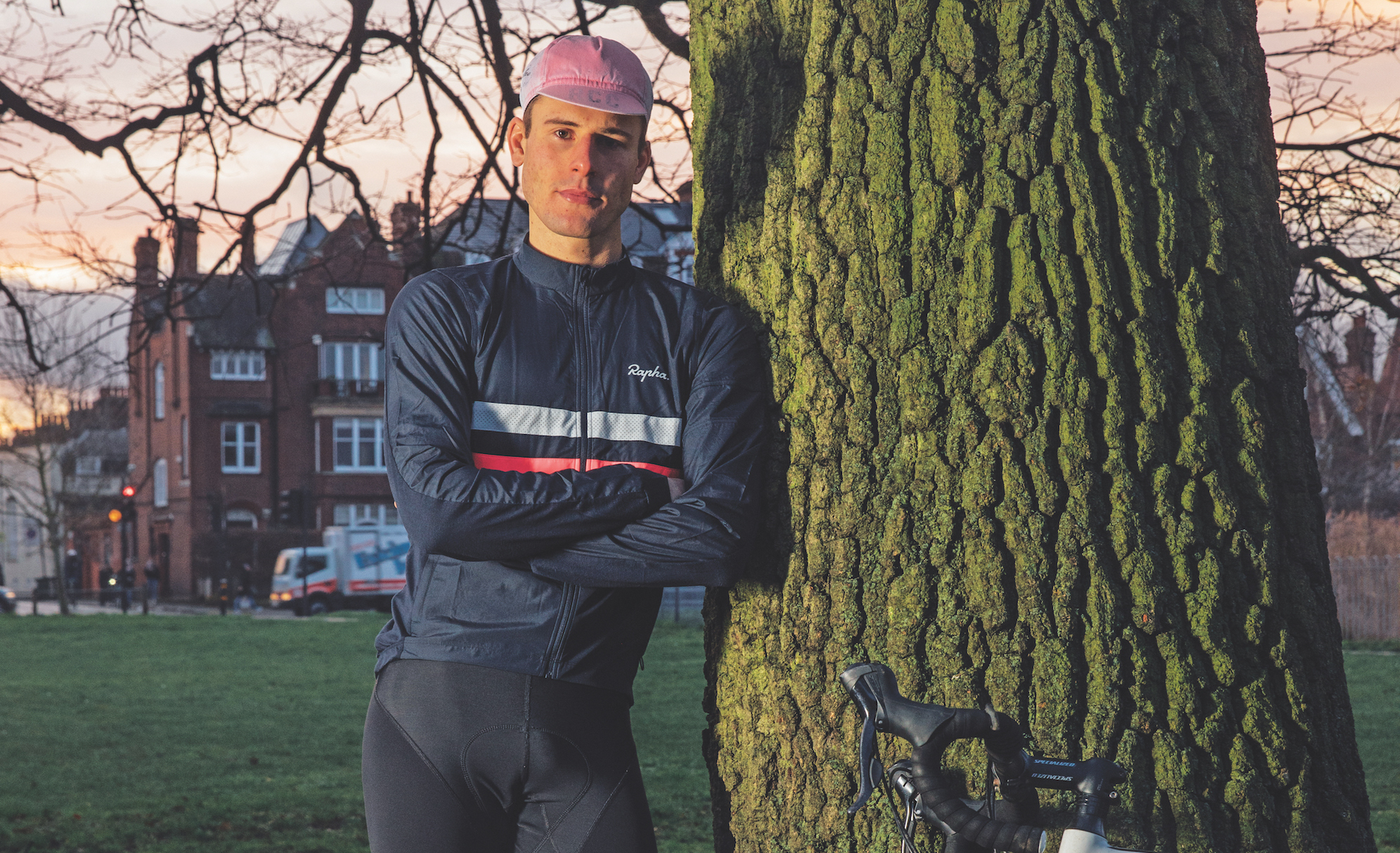 Sweet success: How I won Red Bull Timelaps as a diabetic rider
Sweet success: How I won Red Bull Timelaps as a diabetic riderType-1 diabetic George Kirkpatrick is on a mission to prove that compromised blood sugar control is no barrier to success — however long the race
By David Bradford Published
-
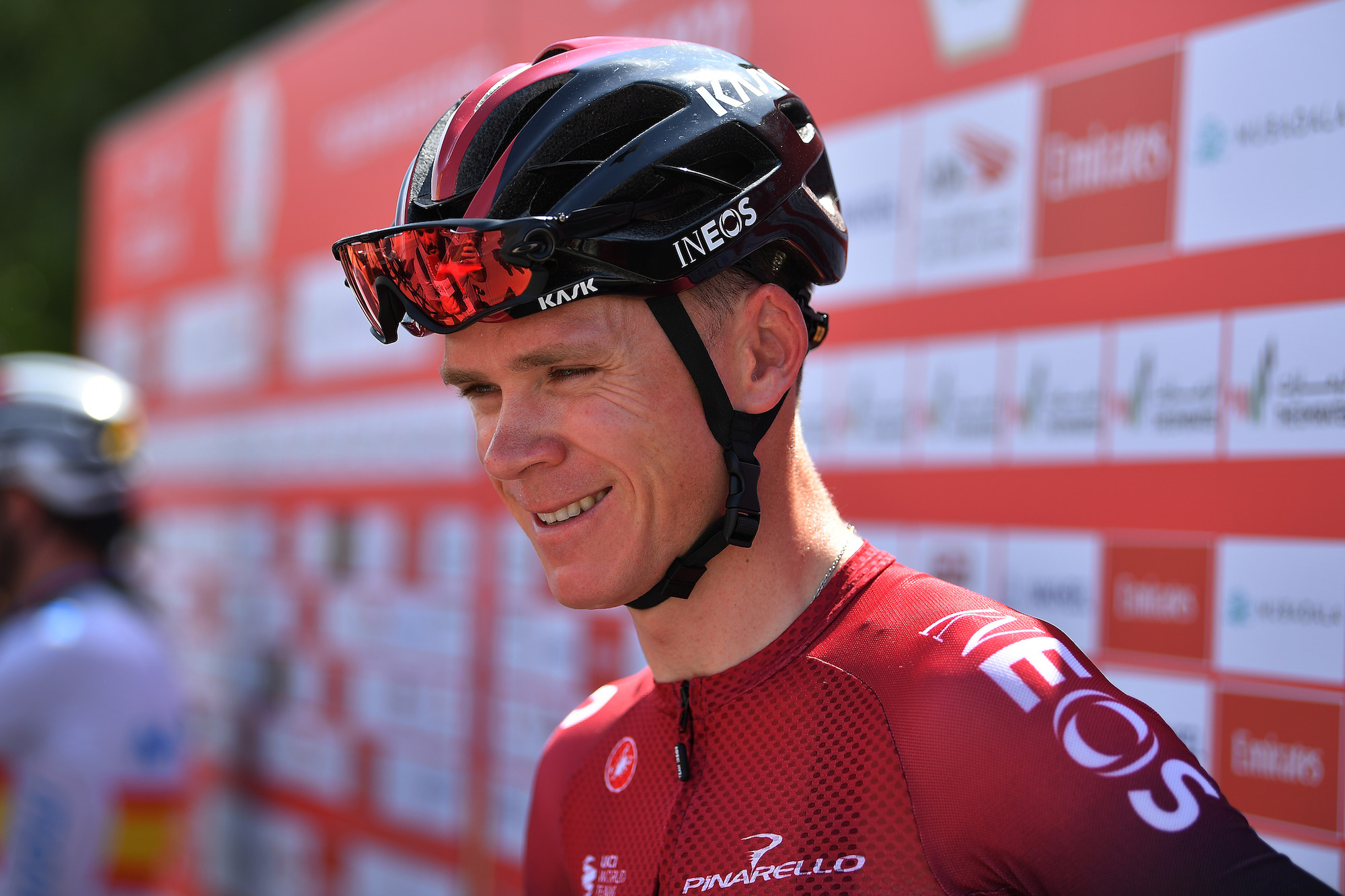 Can Chris Froome recover to win a fifth Tour?
Can Chris Froome recover to win a fifth Tour?After a horrific crash, Froome’s road to recovery has not been easy. James Shrubsall assesses the hurdles he’ll need to overcome to wear yellow in Paris this July
By James Shrubsall Published